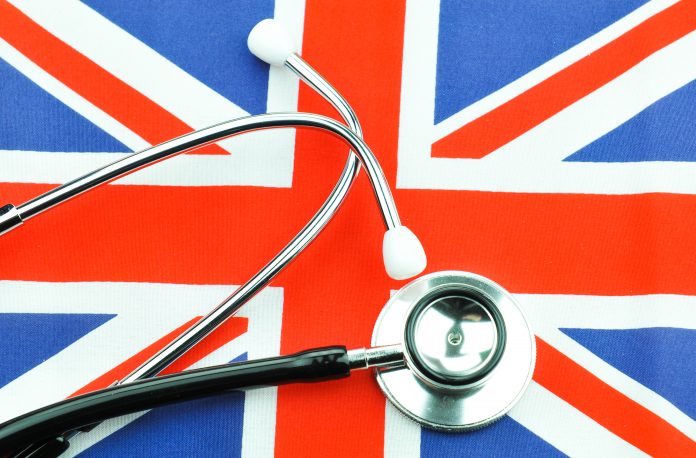The potential impact of a no-deal Brexit on public health services in the UK has been widely reported. UK law firm Smith Partnership takes a closer look at the issue
After a storm of recent developments in the political arena, a no-deal scenario continues to be a potential outcome of the Brexit debate. The effect of a no-deal Brexit on the delivery of public health services has received particular media attention, with health think tanks, the Royal Pharmaceutical Society and several other organisations voicing their concern.
In this article, Anna McLeod, Associate and clinical negligence specialist with leading UK law firm Smith Partnership, takes a closer look at the potential consequences a no-deal scenario might have for public health services in the UK.
What are the concerns?
Concerns about the potential impact of no-deal on public health services first came into the spotlight following the original publication of government documents relating to Operation Yellowhammer, which were leaked last month.
The operation – which is being led by the Cabinet Office’s Civil Contingencies Secretariat (CCS) – is aimed at planning appropriate measures to mitigate the risks of a no-deal Brexit. The original leak was followed by the MP-forced publication of the government’s ‘reasonable worst-case planning assumptions’ in September.
Whilst the leaked documents discussed projected consequences in diverse areas such as transport, banking and finance, national security and immigration, significant attention was also paid to healthcare services. One of the main areas of concern includes potential shortages and delays relating to medicines and medical supplies as a result of transport disruption on the Channel, which is currently the main route for medicines to come into the UK.
What has the reaction been?
There has been widespread reaction from numerous key stakeholders, but the response has been mixed. As with many other aspects of the Brexit debate, the potential implications of a no-deal Brexit are highly contested.
The Guild of Healthcare Pharmacists, for example, commented that the government was “not fully prepared” and risked increasing NHS costs without providing benefits to patients. In turn, the British Medical Association (BMA) has warned that a no-deal Brexit may push NHS services “to the brink“.
An open letter to MPs published by The King’s Fund – an independent charity aimed at improving health and care across England – voiced concerns about the potentially problematic implications of no-deal with regard to the NHS staffing crisis, shortages and price rises for vital supplies, funding shortfalls and providing care for returning emigrants.
Commenting on medicine shortages specifically, Spire Healthcare – a private hospital operator – stated that they believe their organisation’s risk of facing medicine shortages is low due to preparations made by the firm and the NHS. In turn, the Department for Health and Social Care (DHSC) has stated that current constraints associated with the supply of medicine are unrelated to Brexit.
Uncertainty as the only certainty
Whilst nobody knows for sure what the immediate impact of a no-deal Brexit will be, it’s clear that there is growing uncertainty about how an EU exit might affect public health services in the UK. Whatever the case, the government is having to prepare for any eventuality, and the importance of those preparations is growing with each passing day.
As far as health matters are concerned, the idea that a no-deal Brexit could lead to shortages and delays in medicine supplies is at least a significant possibility. A potential no-deal scenario raises questions with regard to various other aspects of public health as well, for example by casting doubt on how exactly claims for personal injury that arise in an EU country would be dealt with.
With the default date for an EU exit fast approaching, the government is stepping up its preparations. As of September 2019, the government has committed £8.3 billion towards preparing for no deal, around £434 million of which is to be spent on stockpiling medicines and medical products as well as covering freight capacity and warehousing.
Delivering public health services post-Brexit
Whichever way negotiations pan out, Brexit is likely to usher in at least some changes to the delivery of public health services in the UK. The extent of these implications will be determined by whether or not a deal can be struck, and if so, what form it will take on.
In the meantime, the questions posed by Brexit will continue to be subject to heated debate. Having said that, it is the events set to take place in the political arena over the next few weeks and months that will be instrumental in shaping the UK’s future outside of the EU, and with it, the way in which our public health services are to be delivered in the years to come.




![Europe’s housing crisis: A fundamental social right under pressure Run-down appartment building in southeast Europe set before a moody evening sky. High dynamic range photo. Please see my related collections... [url=search/lightbox/7431206][img]http://i161.photobucket.com/albums/t218/dave9296/Lightbox_Vetta.jpg[/img][/url]](https://www.openaccessgovernment.org/wp-content/uploads/2025/04/iStock-108309610-218x150.jpg)






